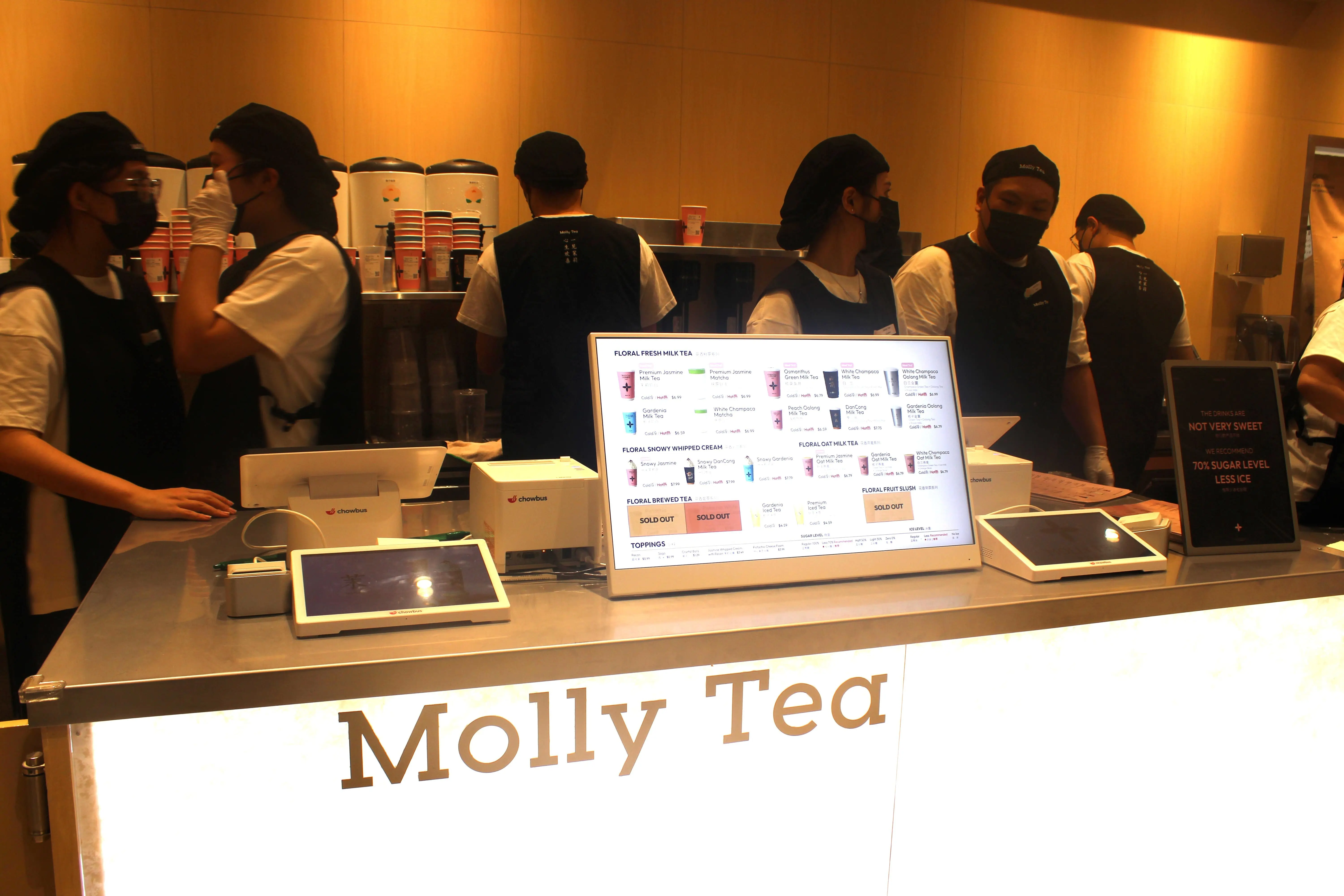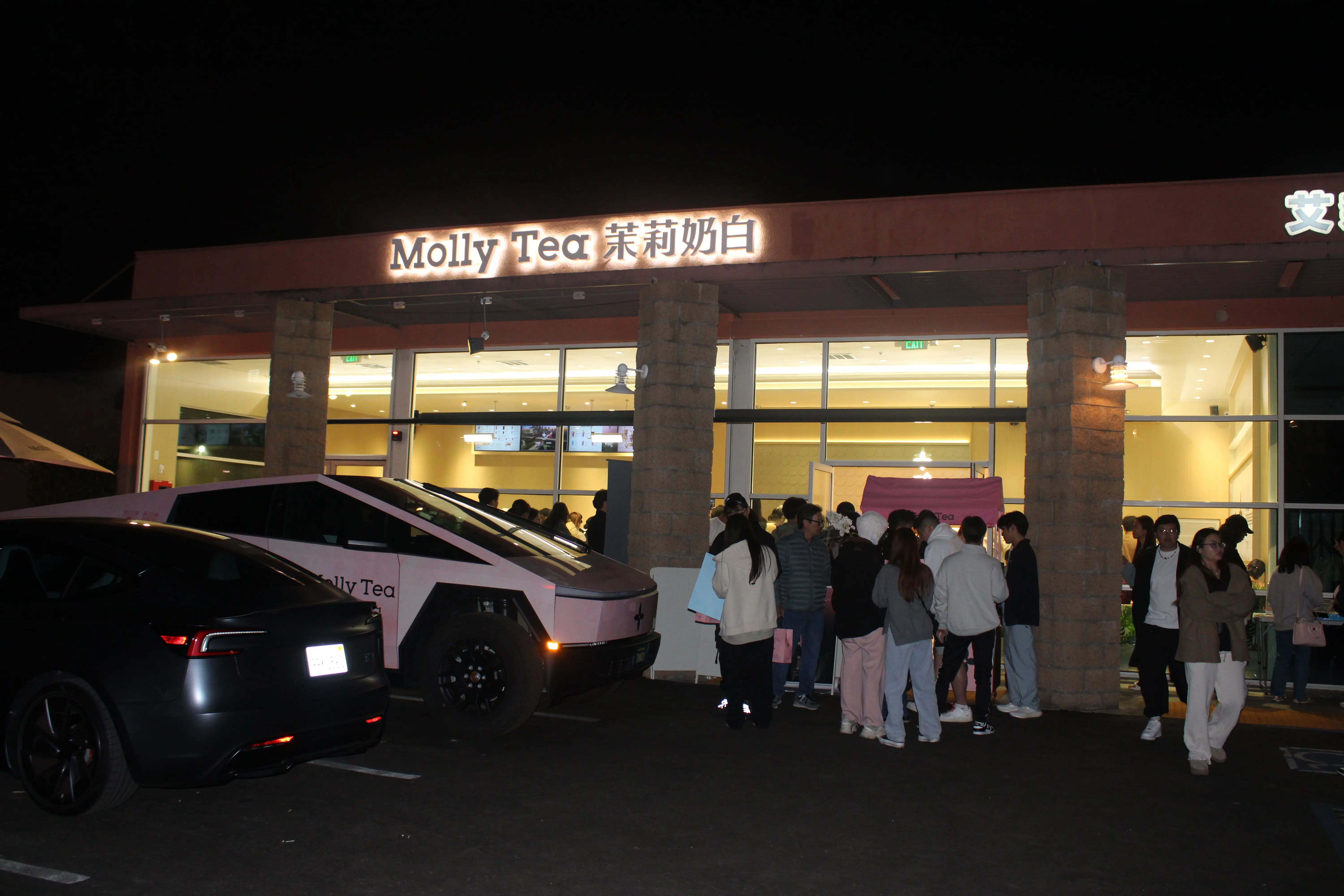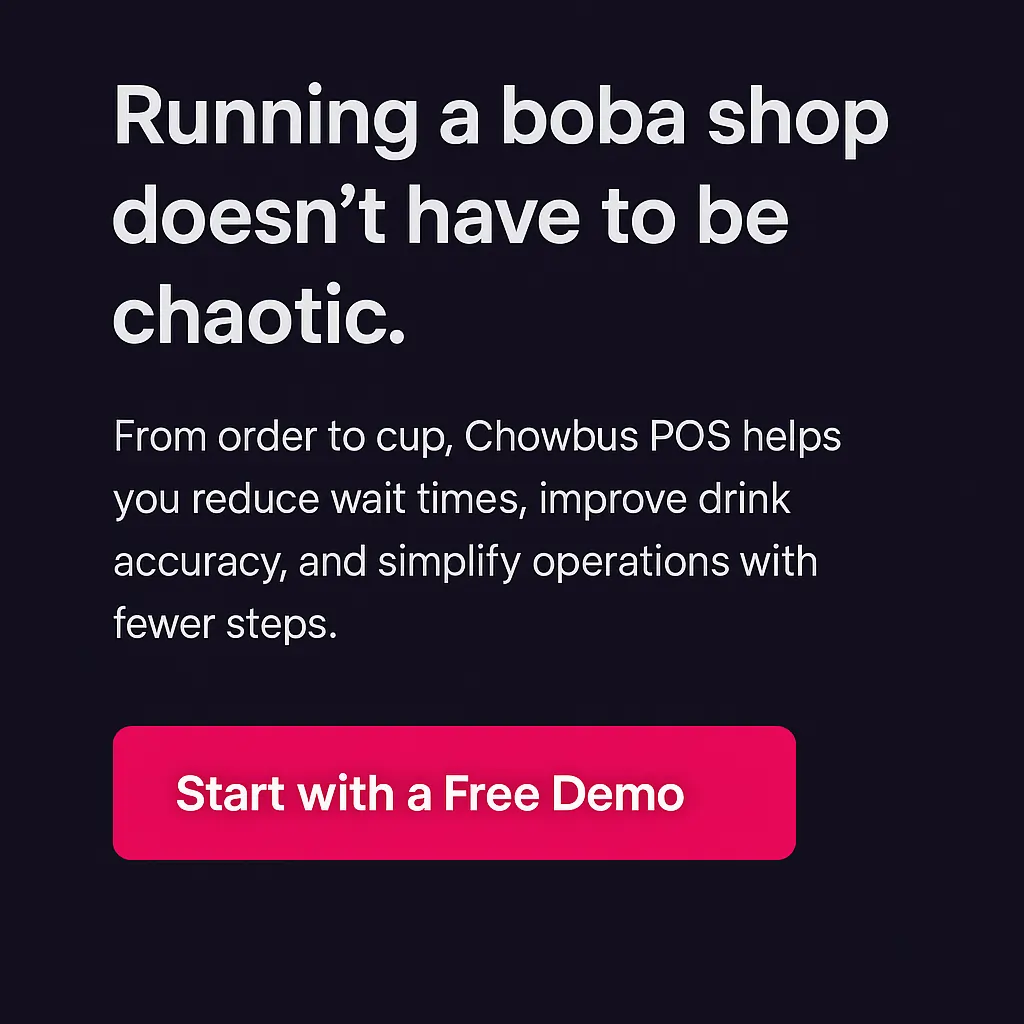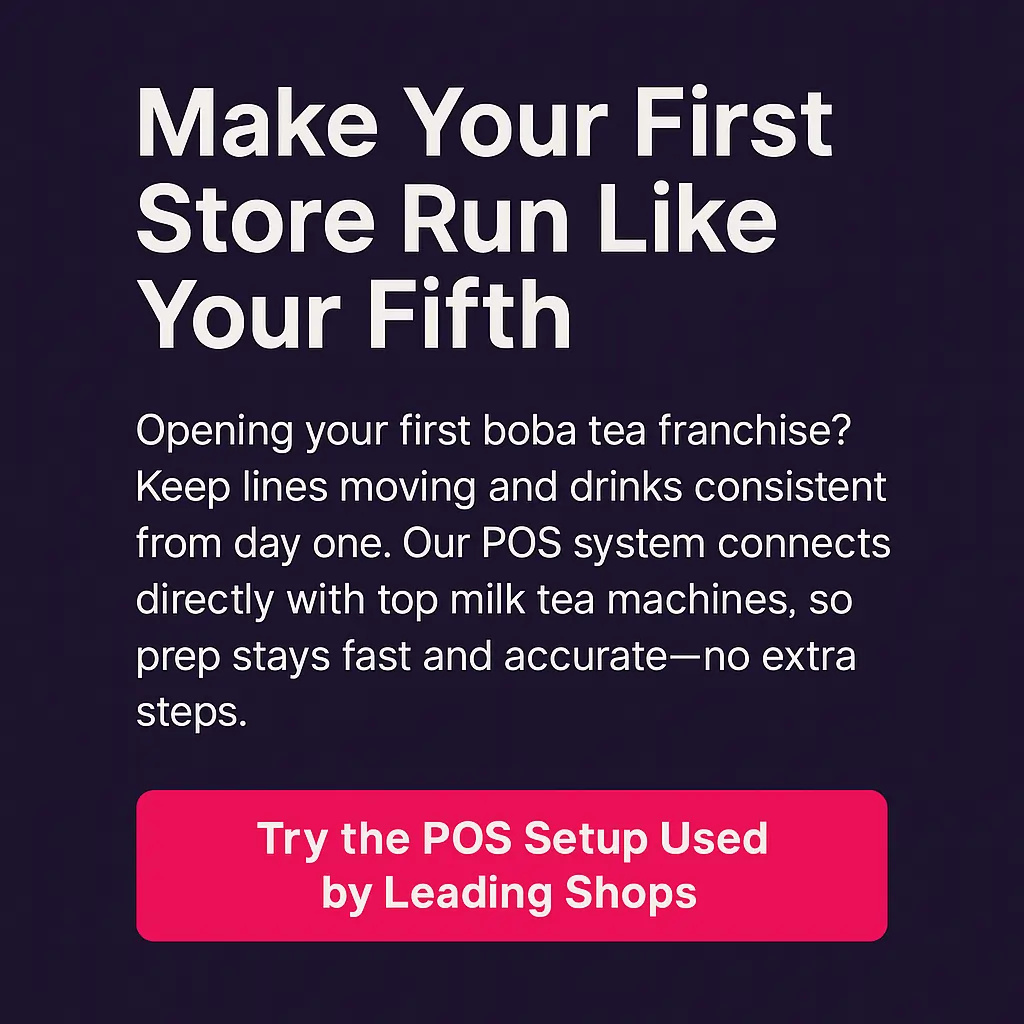This is the default title value
This is the default desc value
button
Franchising can be a smart way to launch a profitable food business without starting from scratch. If you’re comparing opportunities and wondering where boba tea fits, this guide breaks down exactly how to franchise boba milk tea from initial research to opening your first store.
You’ll also learn what to look for in a boba tea franchise, how much it typically costs, and what kind of support to expect. Whether you’re expanding an existing concept or starting fresh, this can help you make a clear, informed decision.

Boba tea continues to attract a loyal, growing customer base, especially younger consumers who prioritize customization and unique drink options. The product sells well, trends consistently online, and drives repeat visits with minimal menu changes.
A boba tea franchise gives you the advantage of starting with a brand that people recognize, a product with proven demand, and a system designed to help you operate efficiently from day one. It's a way to step into the food and beverage space without building everything yourself.
Here’s why it appeals to both first-time operators and seasoned investors:
Franchising gives you a practical path to build a business with a popular product and reliable support. Joining a boba tea franchise gives you access to a proven system and brand loyalty without starting from zero.
Before choosing a boba tea franchise, understand which model best fits your business goals. Each setup offers different levels of investment, control, and support. Here’s how they typically break down:
A kiosk model works well in malls, airports, universities, and food courts. It costs less to launch, takes up less space, and typically requires fewer employees. It's a practical option if you're looking for lower overhead or plan to open multiple units in high-traffic spots.
A storefront offers more room for a full menu, seating, and a stronger brand presence. It's better suited for urban streets, shopping centers, or standalone spaces. This model often supports higher sales volume but may require more up-front capital and staffing.
A full franchise gives you the brand name, visual identity, menu, training, and support. It’s more structured, and ideal if you want a turnkey system with proven branding and operations.
Some brands offer licensing or white-label options, which give you more flexibility but less oversight. You might use their ingredients and preparation methods, but handle your own branding, design, or customer experience. These options suit operators who want to integrate boba into an existing café or customize the brand to their liking.
Franchisors vary in how much support they provide. Some offer full setup guidance, staff training, marketing assets, and sourcing help. Others may only provide branding and menu standards. Know what’s included before signing. If you’re managing multiple locations or operating remotely, strong corporate support will save time and reduce operational friction.
Before committing to a boba tea franchise, compare models based on your available capital, level of involvement, and expansion goals. Choosing the right setup early can lead to smoother operations and faster growth.

Learning how to franchise boba milk tea means going through a clear process from brand research to opening day. Here’s how to approach each step with confidence and focus.
Start by reviewing well-known brands that offer franchise opportunities. Look at what sets each apart: menu style, brand recognition, customer base, support structure, and store format. Some focus on authentic recipes with premium ingredients. Others highlight customizable drink menus, seasonal launches, or social media engagement.
Don’t just look at the surface. Read through their websites, request franchise brochures, and explore their presence in other cities or states. Check reviews and reach out to current franchisees if the brand allows it. The right match will align with your goals, investment range, and level of involvement.
Each boba tea franchise has its own startup cost, depending on location, store size, equipment, and build-out needs. You’ll likely see franchise fees ranging from $25,000 to $50,000. Total investment typically falls between $100,000 and $250,000.
In addition to fees, review the franchisor’s requirements: net worth, liquid capital, store format, and your availability to manage or oversee operations. Be clear on what you’re expected to cover: lease agreements, equipment, staff hiring, and initial inventory.
This is also the stage to compare royalty fees and marketing contributions across brands. Some include national advertising. Others leave that fully in your hands. Know what support is built in and what you'll handle locally.
Once you’ve chosen a brand that fits your goals, complete the franchise application. This usually includes background information, business experience, and financial qualifications. A brand representative may reach out for an interview or discovery call.
If your application moves forward, you’ll receive a Franchise Disclosure Document (FDD). This outlines the franchise terms, obligations, and financial details. Review this thoroughly and consult a franchise attorney if needed.
Approval timelines vary. Once you're cleared, the next phase moves quickly.
Approved franchisees begin training, either in person or online. Training typically covers store operations, product preparation, brand standards, employee hiring, and customer service. You’ll also receive guidance on location layout, signage, and equipment setup.
During this phase, work closely with the brand team on site selection (if it's not finalized), build-out, and inspections. Some brands help with local contractor connections. Others provide a checklist to follow.
Training gives you the operational foundation to run your store confidently from day one.
After build-out and pre-opening checks, you're ready to open. Franchisors may send representatives for opening support or provide detailed launch-day guidance. Most continue offering help with promotions, operational tips, and product updates.
The opening phase is where you apply everything you’ve learned. A strong team, consistent quality, and active local marketing will help set the tone for your long-term success.
Learning how to franchise boba milk tea means understanding the full process—from exploring the right brands to managing the daily flow of a functioning store. The more prepared you are at each step, the smoother your launch will be.

Not every boba brand delivers the same value. Before signing anything, focus on the parts of the business that will directly affect your ability to grow and operate efficiently.
1. Brand Reputation
Pick a brand with strong visibility and trust. Check how it performs in reviews, on social media, and in similar markets. A recognizable name draws customers faster and builds confidence from day one.
2. Training and Support
A reliable franchise should guide you through store setup, employee training, and operational standards. Clear onboarding and ongoing support reduce delays and help you stay consistent with brand expectations.
3. Product Quality and Supply Chain
Consistent flavor and presentation start with the right ingredients. Ask where the teas, toppings, and packaging come from. A dependable supply chain ensures you don’t run into sourcing problems as you grow.
4. Menu Flexibility
Regional preferences vary. Some brands let you add seasonal flavors or locally popular options. Flexibility helps you stay relevant without straying from the brand.
5. Scalability
If your long-term goal is to open multiple stores, check if the franchise supports multi-unit operators. Some offer discounted fees or shared marketing resources for expansion, which can make growth more efficient.
Choosing the right boba tea franchise isn’t just about the upfront investment. Look at how the brand supports operators over time. The right fit sets you up to launch confidently and grow on your terms.
Before moving forward with any boba tea franchise, take time to assess a few key areas that can directly impact your success.
Local Market Demand
Start with your area. Look at nearby competitors, foot traffic, and general interest in bubble tea. If other shops are doing well, that can signal demand—but too many in a small radius may make growth harder. Visit those shops, see their pricing, and pay attention to customer behavior.
Legal and Contract Terms
Franchise agreements vary. Review everything carefully, especially fees, territory restrictions, branding rules, and renewal terms. Know what you’re signing up for, including what’s expected from you as a franchisee. A franchise attorney can help you avoid surprises later.
Scalability and Future Growth
Think long-term. If this first store succeeds, will the brand support additional locations? Some franchisors offer multi-unit deals or reserved territories. Ask about expansion options early if that’s your goal.
Talk to Existing Franchisees
Reach out to current operators. Ask about the training, daily support, and real profitability, not just what’s in the brochure. Direct feedback gives a more accurate view of what running the business actually looks like.
These steps help you decide with more confidence and avoid issues down the line. A strong franchise fit should align with your budget, goals, and operational style.
A well-chosen boba tea franchise can give you the structure, brand power, and proven product needed to build a profitable business. By comparing models, evaluating support, and preparing for each stage of setup, you can open your store with confidence and position it for steady growth. The right partner helps you focus on delivering quality drinks and great service while running an efficient operation.
Chowbus POS offers the best POS system for bubble tea shops, helping you serve drinks faster and keep operations organized from day one. Our all-in-one platform integrates with automatic boba machines so you can prepare drinks with ease. Place an order, print a QR-coded label, scan it, and let the machine handle the rest. We also support several top Chinese machine brands, giving you consistent quality and reliable performance.
Book a Free Demo with Chowbus POS today and see how we can help your shop run more smoothly and boost revenue.

Thinking about franchising boba tea comes with plenty of questions, especially when margins, growth potential, and startup costs matter. Below are clear, practical answers to help you assess whether this path fits your goals.
Yes, if you choose a high-traffic location and control costs. Bubble tea has strong gross margins, but rent, labor, and franchise fees determine your net. Many well-run shops target ~10–20% net profit after ramp-up, though results vary by market and build-out costs.
What drives profit:
Quick check:
Monthly profit ≈ Sales – (COGS + Labor + Rent + Royalties + Utilities + Debt).
Before you commit, verify assumptions with the franchisor’s disclosure, local comps, and a break-even forecast.
Yes, if your location, costs, and volume line up. A boba franchise can be worth it because you get brand recognition, training, and supplier deals; the trade-off is royalties, marketing fees, and less menu flexibility. Independent shops keep full control and may earn more, but require stronger branding and operations.
Rule-of-thumb targets: rent ≤10% of sales, COGS 25–35%, labor 20–30%. Many well-run shops break even in 12–24 months in high-traffic areas; slower if rent is high or foot traffic is weak.
Before you commit, model your numbers: expected foot traffic, average ticket, and cups per day needed to cover franchise fees and build-out. If your projections show healthy margins after all fees, franchising boba milk tea can be worth it; if not, test with a kiosk or pop-up first.
Often—if the fundamentals line up. Boba shops can yield strong drink margins and repeat sales, but profit depends on location, brand support, and strict cost control. Before you franchise, validate foot traffic and competition, total investment (build-out, equipment, franchise/royalty/marketing fees), and realistic sales forecasts. When the numbers work and you execute well, it’s a solid niche; when you rely on hype, it isn’t.
Yes. Demand is high and growing. According to IBISWorld, the U.S. Bubble Tea Shops industry reached 6,635 businesses in 2024 (up 19.4% year over year) and employs about 40,751 people. IBISWorld also reports the industry’s market size has grown since 2019 (positive CAGR). This expanding footprint signals established, rising demand—making boba a compelling franchise category.
Looking for more insights on food franchising, boba shop operations, or ways to streamline your business? Visit our blog for updates, how-to guides, and expert tips to help you plan, launch, and grow with confidence.

Recommended Articles: